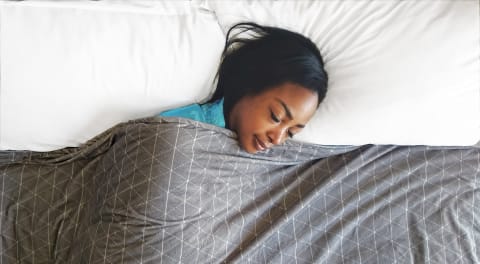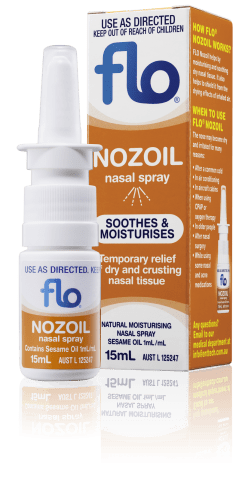ResMed Australia
ResMed CPAP machines and CPAP masks include some of the most popular designs and comfort levels experienced by patients. By listening to their patients, ResMed continue to learn and to further develop their ResMed CPAP Machine and Mask line to ensure they are providing patients with the highest levels of comfort required for truly restful sleep.
As one of the largest CPAP suppliers in Australia and New Zealand, we will find you the best solution for your new ResMed CPAP Machine or Mask and make sure that we fit any budget. We offer price matching on products available from any accredited Australian and New Zealand supplier so we can guarantee you the lowest prices available for your CPAP machine and mask.
Read more...
Our range of ResMed Machines includes automatic CPAP machines like the Airsense 10 Autoset and Autoset For Her, as well as fixed pressure machines such as the Airsense 10 Elite. We offer a wide range of ResMed CPAP Masks including the AirFit P10 nasal pillow mask, AirFit N20 nasal mask and F20 full face mask. We also keep stock of older ResMed Masks including the ResMed Mirage FX nasal mask as well as the ResMed Mirage Quattro full face mask.
Using a CPAP machine to assist in restoring restful sleep and treating obstructive sleep apnoea can be a difficult process to become used to. Often patients using CPAP machines experience difficulty adapting with the change in sleep position. ResMed Masks are designed to mimic normal sleep flexibility as much as is possible while using the CPAP machine.
As not everyone is the same, they have also developed a range of masks designed to fit smaller framed faces such as women’s specific masks. Design types and comfort can vary greatly and Sove CPAP Clinic has a range of new and pre-owned options to suit everyone and every budget.
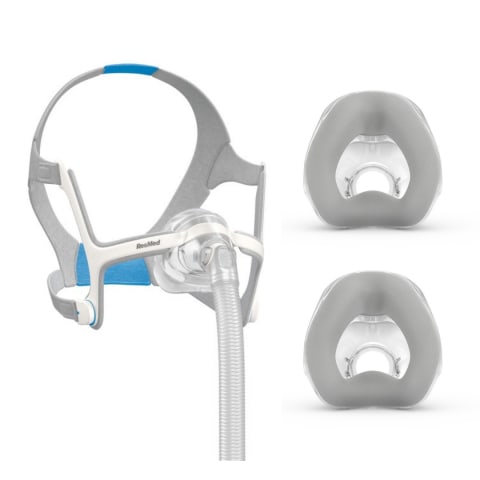 Further $20 Off with code "SUMMER20"
Further $20 Off with code "SUMMER20"
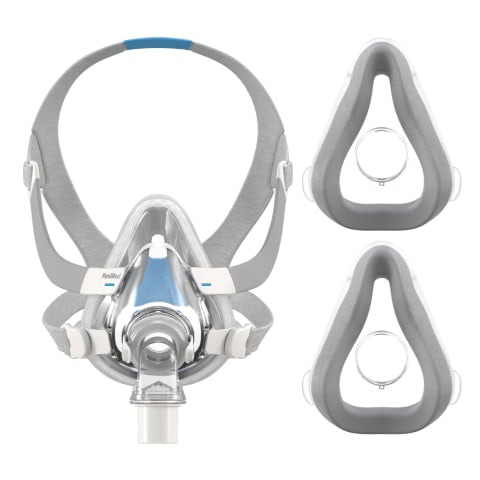 Further $20 Off with code "SUMMER20"
Further $20 Off with code "SUMMER20"
 Further $20 Off with code "SUMMER20"
Further $20 Off with code "SUMMER20"
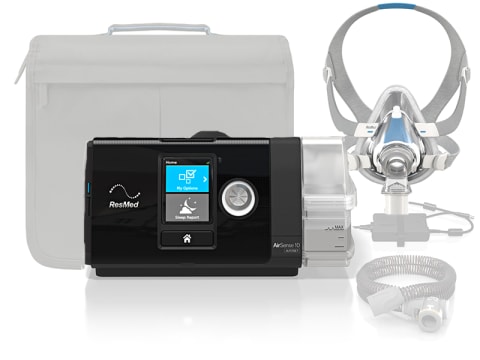 Further $50 Off with code "SUMMER50"
Further $50 Off with code "SUMMER50"
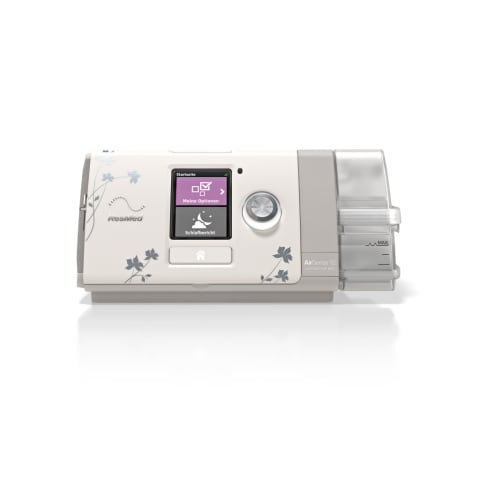 Further $50 Off with code "SUMMER50"
Further $50 Off with code "SUMMER50"
 Further $20 Off with code "SUMMER20"
Further $20 Off with code "SUMMER20"
 Further $20 Off with code "SUMMER20"
Further $20 Off with code "SUMMER20"

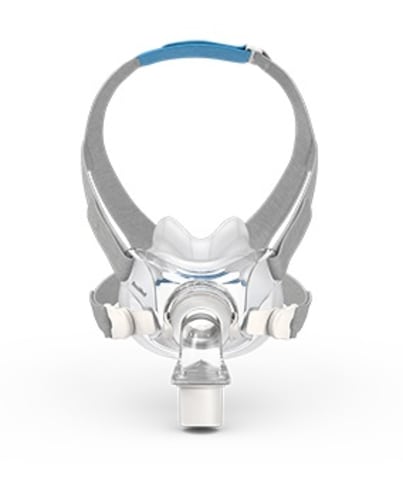 Further $20 Off with code "SUMMER20"
Further $20 Off with code "SUMMER20"
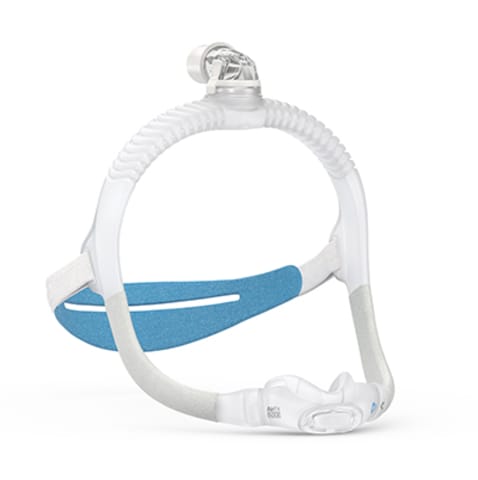 Further $20 Off with code "SUMMER20"
Further $20 Off with code "SUMMER20"
 Further $20 Off with code "SUMMER20"
Further $20 Off with code "SUMMER20"
Are you looking for more advice on available ResMed CPAP machines and CPAP masks?
Check out our range of ResMed CPAP products available online or in store at one of our local clinics in your area. You can chat with a sales specialist online who can assist you with purchasing the right machine for you, or book an appointment for a full professional consultation. We will find you the right solution for any budget with genuine, independent buying advice that ensures you get the best treatment available.
Purchasing a ResMed CPAP Machine or mask from Sove CPAP Clinic doesn’t finish with the transaction. Shopping with Sove CPAP Clinic means you have access to not only specialist sales staff but also access to our network of clinics across the country who can provide you with professional patient consultations and on-going patient care throughout your treatment.
We believe that patient care is paramount. Offering you the latest ResMed CPAP Machines and treatment solutions, we will provide independent and professional buying advice to suit your budget and treatment needs. With a Full Service, you can enjoy care and support from your clinic consultant ongoing throughout your treatment.
FAQs
1. How do I know if I need a CPAP machine for my sleep apnea?
If you snore loudly, feel excessively tired during the day, wake up gasping, or someone’s noticed you stop breathing while asleep, you might have sleep apnea.
In Australia, the first step in getting assessed for sleep apnea is to visit a general practitioner (GP) or a sleep specialist. They will evaluate your symptoms and medical history and, if sleep apnea is suspected, refer you for a sleep study. This study can be conducted in a sleep clinic (overnight, in-lab polysomnography) or at home using portable monitoring equipment. The sleep study measures several parameters including your breathing patterns, oxygen levels, heart rate, and movement during sleep.
CPAP therapy is typically recommended if your AHI is 15 or higher (moderate to severe sleep apnea), or if you have troubling symptoms even with a mild score. A CPAP machine uses gentle air pressure to keep your airway open and improve oxygen levels during sleep. Clinics like us at Sove often offer CPAP trials so you can test a CPAP before committing to purchase.
Remember, early diagnosis and treatment of sleep apnea can make a profound difference in both your short-term functioning and long-term health. If you’re experiencing symptoms, it’s important to seek professional advice rather than dismissing them as just “bad sleep.”
2. What are the key features of ResMed CPAP machines?
ResMed CPAP machines are among the most trusted and widely used in the world, known for their quiet operation, advanced features, and user-friendly design. Whether you’re new to CPAP therapy or upgrading your current setup, ResMed offers a well-rounded solution that prioritizes comfort, convenience, and effectiveness.
One of the standout features is AutoSet technology, which automatically adjusts air pressure levels throughout the night based on your breathing. This responsive feature ensures you get the right amount of pressure when you need it—no more, no less—making therapy more comfortable and reducing the likelihood of waking up due to pressure changes. This is especially useful for people whose sleep apnea severity varies from night to night.
To combat one of the most common CPAP complaints—dryness in the nose and throat—ResMed machines come with built-in humidification. This feature helps add moisture to the air you breathe, making therapy more comfortable, especially in dry climates, air-conditioned rooms, or during winter. Optional heated tubing can also be added to prevent “rainout,” or condensation buildup inside the hose, which can otherwise cause noise or discomfort.
Comfort-focused features like Expiratory Pressure Relief (EPR) reduce the pressure slightly when you breathe out, making exhalation feel more natural and less forced. SmartStart functionality allows the machine to begin and end therapy automatically based on your breathing—simply put on your mask and start breathing to activate it and remove your mask to stop.
ResMed also empowers users to stay engaged in their therapy with the myAir app. This free, easy-to-use companion app provides you with a nightly sleep score, tracks your CPAP usage, and offers coaching tips and encouragement to help you stay on track. Many users find this motivational and reassuring, especially during the early weeks of adjusting to therapy.
3. What types of CPAP masks are available, and how do I choose the right one?
CPAP masks are a crucial part of therapy, and choosing the right one can make a significant difference in your comfort, consistency of use, and treatment success. There are three main types of CPAP masks, each suited to different breathing habits, sleep positions, and facial features:
- Nasal masks cover only the nose and are a popular choice for those who primarily breathe through their nose while sleeping. They offer a good balance between comfort and a secure seal and are often recommended for back or side sleepers. Nasal masks can accommodate a range of pressures and are generally less bulky than full-face masks.
- Full-face masks cover both the nose and mouth, making them ideal for mouth breathers or those who experience frequent nasal congestion or allergies. They’re also a good option for people who need higher pressure settings. While full-face masks can feel bulkier, newer models with soft seals and flexible frames—such as those with memory foam cushions—offer better comfort and reduced pressure points.
- Nasal pillows are the most minimalistic style, with small cushions that sit just inside the nostrils. They are extremely lightweight and ideal for people who feel claustrophobic with larger masks or who have facial hair that interferes with mask seals. They also work well for active sleepers or those who wear glasses while reading or watching TV in bed.
To choose the right mask, think about how you breathe at night, your sleep position, and facial features. Side sleepers may prefer masks with top-of-head hose connections (like the ResMed N30i or P30i), while those with facial hair may find nasal pillows or memory-foam full-face masks more effective.
It often takes trial and error. At Sove, we usually let you try different masks or offer exchange policies if the first choice isn’t quite right.
4. Can I travel with my CPAP machine?
Absolutely. Traveling with a CPAP (Continuous Positive Airway Pressure) machine is not only possible—it’s common and well-supported. Most modern CPAP machines are designed with portability in mind, and they are considered medical devices, so airlines typically allow them as additional carry-on items without counting against your baggage allowance. However, it’s still a good idea to confirm with your airline ahead of time.
For added convenience and peace of mind, bring a copy of your CPAP prescription or a note from your doctor. While not always required, these documents can be helpful if airport security personnel ask questions or if you need to purchase replacement parts or supplies while away.
ResMed and other manufacturers offer compact travel CPAP models, such as the ResMed AirMini, which is lightweight and highly portable. Even standard units like the ResMed AirSense 10 and AirSense 11 are compact enough for travel and come with protective travel cases.
Most CPAP machines are dual-voltage (100–240V), making them compatible with international power supplies. When traveling abroad, you’ll just need the appropriate plug adapter for the country you’re visiting. For situations where electricity may not be available—like camping or off-grid trips—you can use a compatible CPAP battery pack or a 12V DC converter that connects to a car or portable power station. Be sure to check your machine’s compatibility with battery systems before your trip.
5. Does insurance cover ResMed CPAP machines and masks?
In Australia, Medicare does not cover CPAP machines, but sleep studies and sleep specialist visits are often bulk-billed. Private health insurance with Extras cover may reimburse part of the cost of CPAP machines, masks, and accessories, depending on your policy.
Please note that funds usually require a prescription or sleep study result, and waiting periods may apply. Veterans may get full coverage through DVA, and NDIS may assist if CPAP is tied to a disability-related health goal. Clinics like Sove also offer interest-free payment plans if you’re paying out-of-pocket.
Always check with your insurer about what’s included and keep receipts for possible future claims.
6. How do I set up and adjust my ResMed CPAP machine?
Setting up a ResMed CPAP machine is a straightforward process, especially if it has already been pre-configured to your prescribed pressure settings. While it’s always best to follow your user guide, in general, you can begin by placing the machine on a stable surface beside your bed—ideally level with or slightly below mattress height—to help prevent water backflow from the humidifier. After plugging in the power supply, insert the air filter, slide the humidifier tub into place, and fill it with distilled water or cooled, boiled water (never overfill).
Next, connect the hose to the machine and mask. If you’re using heated tubing, make sure the electrical connectors are properly aligned. Fit the mask comfortably—not too tight, just enough to create a seal once the airflow begins. When you power on the device or begin breathing, the CPAP should start automatically. ResMed’s machines are designed to detect your breath and initiate therapy without needing to press buttons.
The comfort settings, like ramp time, humidifier level, or EPR (Expiratory Pressure Relief) are typically user-adjustable and can make a big difference in early adaptation. Ramp allows the machine to start at a lower pressure and gradually increases, making it easier to fall asleep. Humidification prevents dryness, while EPR eases exhalation by slightly reducing pressure when you breathe out. These don’t alter your core therapy settings but can help you feel more comfortable as you settle in each night.
Most users get used to CPAP within a week or two, but if something feels off (mask leaks, discomfort, dryness) it’s best to reach out to your provider for fine-tuning. You don’t need to do it alone; expert support is part of the process.
7. What kind of support is available if I have trouble with my CPAP machine?
Adjusting to CPAP therapy can take time, but the support is available. If you’ve purchased your machine through us at Sove, you’ll have access to ongoing care. Our Respiratory and Sleep Physicians, and CPAP consultants, can help troubleshoot mask discomfort, machine settings, dryness, or even emotional hurdles that sometimes arise when starting therapy. If you’re using your CPAP nightly but still feel tired or notice ongoing symptoms, a review with our respiratory and sleep physicians can determine if settings need to be changed or if another issue is at play.
Mask fit is one of the most common concerns for new users, and many providers offer a 30-day exchange policy, allowing you to try different styles until you find one that’s truly comfortable. You can also have your therapy data reviewed—most ResMed machines wirelessly upload your usage, leak rate, and apnea events—so your clinician can see exactly how well therapy works.
ResMed’s myAir app offers daily feedback and coaching tips, helping you understand and improve your usage habits. Beyond the clinical setting, there are also online forums, support groups, and communities where users share tips and encouragement. Whether you’re struggling with pressure tolerance, dryness, noise, or emotional resistance to the therapy, there’s help—and chances are, someone has faced (and solved) the same challenge before you.
8. How often should I replace CPAP masks and machine parts?
While the CPAP machine itself can last about five years with proper care, its components need more frequent replacement to stay effective and hygienic. The mask cushion or nasal pillows—the parts that come into direct contact with your face—tend to wear out every three to six months. Over time, the silicone becomes softer or discolored, and the seal starts to weaken, leading to leaks and reduced therapy effectiveness. If you use a memory foam cushion like the one in ResMed’s AirTouch masks, replacement may be needed as often as monthly, since foam degrades faster and isn’t washable.
Mask headgear and straps stretch out with nightly use and typically need replacement every six to twelve months, depending on wear. Tubing should be swapped yearly, unless you notice visible cracks or mold sooner. Filters should be replaced monthly or bi-monthly to ensure clean airflow. If you live in a dusty area or have pets, more frequent changes may be necessary.
A humidifier tub may last one to two years, but this depends on whether you use distilled water and clean it regularly. If it becomes cloudy, cracked, or begins to leak, it’s time for a new one. Keeping a replacement schedule—perhaps marked on your calendar or synced with reminders—can prevent small issues from becoming major problems.
Routine replacements not only improve comfort and seal quality, but they also help prevent irritation, infection, and poor sleep. Investing in fresh components is essential to maintaining the full benefit of your CPAP therapy.
9. How quiet is the ResMed CPAP machine during operation?
One of the most appreciated features of ResMed’s CPAP machines is how incredibly quiet they are. Devices like the AirSense 10 and 11 operate at just 26 to 27 decibels—quieter than a whisper and easily masked by ambient sounds like a ceiling fan or distant traffic. Most users report that they barely notice the sound after a few nights, and partners are usually relieved that it replaces the loud snoring and gasping that often accompany untreated sleep apnea.
The machine produces a soft, steady hum that’s often described as calming. The only other audible component is the gentle hiss from the mask’s exhalation vent, which is designed to diffuse air quietly. If you ever notice an unusual noise—like a whine, rattle, or sudden loud airflow—it could indicate a loose humidifier tub, worn filter, or an improperly seated hose. These are typically quick fixes.
In general, the ResMed’s low noise levels, especially compared to older CPAP models or untreated snoring, make it a non-issue. Some users even grow so used to the sound that it becomes part of their bedtime routine, offering a kind of white-noise effect. If noise has been a concern holding you back from CPAP therapy, ResMed’s technology should put that fear to rest—literally.
10. Can I use a CPAP machine if I have a beard, mustache, or facial hair?
Yes, and you’re in good company—many CPAP users sport facial hair. However, a beard or mustache can make it trickier to get a perfect mask seal, especially with full-face or nasal masks that rest along the cheeks and upper lip. The solution lies in choosing the right mask and possibly making small grooming adjustments.
Nasal pillow masks, like the ResMed AirFit P10, are a popular choice because they seal just at the nostrils, bypassing most facial hair. For those who need full-face coverage, masks with memory foam cushions, like the AirTouch F20, offer more flexibility. The foam contours around facial hair better than silicone, helping to create a reliable seal without requiring a clean-shaven face.
Maintaining your beard can help too. Trimming areas where the mask rests, washing facial hair before bed to remove oils, and avoiding heavy conditioners right before sleep can all improve the seal. Some users also use cloth mask liners to bridge the gap between skin and cushion, with varying success depending on mask and hair type.
You don’t need to shave but be prepared for a little experimentation. With the right setup, CPAP therapy works just as well for bearded users as it does for clean-shaven ones, and often with a bit more style.
11. What is ResMed and what products or services do they offer?
ResMed is one of the world’s leading medical device companies, specialising in sleep apnea and respiratory care. Founded in Sydney back in 1989, ResMed has grown into a global leader but still maintains strong roots in Australia. They design and manufacture a wide range of devices to support sleep therapy at home, including CPAP and APAP machines, ventilators, and a full range of accessories.
Their most popular products include the AirSense 10 and AirSense 11 series, which comes in AutoSet (auto-adjusting), fixed-pressure, and Elite models. For those who travel, the AirMini is a compact, portable CPAP that fits in the palm of your hand. For people with more complex breathing needs, ResMed offers AirCurve Bi-level (BiPAP) machines, which provide more specialised support.
In addition to machines, ResMed also produces a full range of CPAP masks under the AirFit and AirTouch brands—covering nasal pillows, nasal masks, and full-face options. Some masks come with memory-foam cushions for extra comfort. Accessories like humidifiers, heated tubing, filters, and cleaning tools are also available to make therapy more comfortable and effective.
ResMed doesn’t just make hardware—they’re also known for their digital health solutions. Most modern ResMed devices come with built-in wireless connectivity. This means your therapy data is sent automatically to ResMed’s secure cloud, where it can be monitored by your clinician using AirView. You can also track your own progress using the myAir app, which provides daily sleep scores, tips, and encouragement to keep you on track.
Here at Sove CPAP Clinic, we’re proud to partner with ResMed to offer their full range of devices and masks, plus personalised support to help you get the most from your therapy. Our team can guide you through mask fittings, machine setup, training, and ongoing care.
12. What are the key features of ResMed devices?
ResMed machines are known for their reliability, comfort features, and smart technology—all designed to make sleep therapy more effective and easier to stick with. Whether you’re using the latest AirSense 11, the proven AirSense 10, or the compact AirMini, ResMed packs in thoughtful details to improve your experience.
Here are some of the key features:
- AutoSet pressure adjustment: Automatically adapts air pressure breath-by-breath throughout the night to respond to your breathing needs.
- For Her mode: A unique AutoSet algorithm optimised for women, included in certain models like the AirSense 11 and AirSense 10 For Her.
- Integrated humidifier: The built-in HumidAir system keeps air moist and warm, reducing dryness in your nose and throat. You can manually adjust humidity levels or use automatic Climate Control settings.
- Heated tubing: ClimateLineAir tubing helps prevent condensation (rainout) and ensures consistent warmth and comfort.
- EPR™ (Expiratory Pressure Relief): Lowers the pressure as you breathe out, making exhalation feel easier and more natural.
- AutoRamp™: Starts therapy at a lower pressure and gradually increases it as you fall asleep, so you’re not hit with full pressure right away.
- SmartStart/Stop: Starts therapy automatically when you breathe into your mask and stops when you remove it.
- Quiet motor: ResMed machines operate very quietly, often cited as some of the quietest in the industry.
- Wireless connectivity: Built-in Bluetooth and cellular radios send your sleep data automatically to the myAir app and to your clinician’s AirView portal.
- Over-the-air updates: The AirSense 11 can receive new features via software updates, keeping your machine up to date without needing to visit a clinic.
- Easy-to-use design: With large buttons, bright displays (some with touchscreens), and intuitive menus, ResMed machines are user-friendly even for first-time users.
- Travel-friendly: All ResMed machines are FAA-approved for use on flights, and the AirMini is the world’s smallest CPAP machine, weighing only ~300g.
13. Can I use ResMed products without a prescription?
While it’s true that Australian regulations don’t always require a prescription for CPAP machines, many trusted providers do prefer a prescription. That’s because ensuring your machine is set to the correct pressure is vital for both your safety and the effectiveness of your therapy.
A prescription confirms that your pressure setting has been determined by a qualified clinician, based on your individual needs. Using the wrong pressure can lead to discomfort or suboptimal treatment. Typically, prescriptions are issued by a sleep physician or respiratory specialist, following a sleep study—either done at home or in a sleep lab.
At Sove CPAP Clinic, we’re here to support you through every step of this process. If you haven’t had a sleep study yet, we can help you get started. With a valid GP referral, we can arrange a bulk-billed home sleep test and ensure your results are reviewed by a specialist. Once your pressure setting is confirmed, we’ll help you select the right machine—like the AirSense 10 Elite—and make sure it’s configured to match your prescription.
We offer both in-store and telehealth consultations, so no matter where you are in Australia, you can speak with one of our experienced consultants. We’ll answer your questions, walk you through your options, and make sure you’re confident and supported as you begin therapy.
While it might be possible to buy CPAP machines online without documentation, it’s always safest to work with an authorised provider like Sove. We make sure your equipment is clinically appropriate, professionally set up, and backed by a full Australian warranty and expert support—so you can start therapy the right way, with peace of mind.
14. Do I need to purchase any additional accessories to use my ResMed device?
Yes. While a ResMed CPAP machine comes with the essential hardware, you will need a mask interface and some consumables separately.
CPAP Mask: This is the breathing interface that attaches to the machine. It is not included with the machine. You must choose and purchase a mask (nasal pillow, nasal mask or full-face mask) that fits you comfortably. ResMed offers many mask styles (AirFit P10, N20, F20, Quattro, AirTouch F20, etc) to suit different sleeping positions and face shapes. A proper mask fit is critical for therapy, and clinics like Sove can help you select the right one.
Headgear and Cushions: These are parts of the mask and are usually provided with the mask, but they wear out. You will need replacement cushions or headgear over time. (Some masks include extra cushions in starter kits.)
Filters: Every ResMed CPAP uses an air filter to keep dust out of the blower. Most machines come with at least one disposable or reusable filter. Replacement filter packs should be purchased. Typically, a patient replaces the disposable filter monthly (or washes the reusable filter weekly). ResMed sells filter sets designed for each model.
Humidifier Water: If your ResMed machine has an integrated humidifier (like AirSense and AirCurve models), you must use distilled water in the water chamber every night. This water is not included in the package; you can buy distilled water or use a home water distiller.
Hoses/Tubing: A heated hose (e.g. ClimateLineAir) is included with humidified machines. If you need a longer hose or a standard (non-heated) hose, you can purchase those as accessories.
Travel Accessories: If you travel, you might want a travel battery pack (such as ResMed’s portable power station for AirMini/AirSense 10), extra power cords for overseas voltages, or a second carry case.
Cleaning Kits: Optional accessories like CPAP cleaning machines (UV or ozone cleaners) and mask brushes or wipes can help maintain hygiene. Some people use CPAP-specific pillows or hose holders for comfort.
Warranty/Service: Note that ResMed provides multi-year warranties on its machines, but proper documentation (proof of prescription, purchase from authorized dealer) is needed to access repairs.
In short, aside from the CPAP unit itself (which comes with tubing and a bagshop.resmed.com.au), you must buy a mask and replaceable supplies. Clinics and suppliers usually offer “mask starter packs” or bundles to make this easier. Government funding schemes in Australia sometimes supply the mask and consumables up-front for eligible patientsaph.gov.au, but even then you will be responsible for replacements over time. Plan to budget for mask replacements (typically every 6–12 months) and filter packs (every 1–3 months) to keep your ResMed therapy running smoothly.
15. Are ResMed devices suitable for all types of sleep apnea?
ResMed offers a broad range of devices tailored to different forms of sleep-disordered breathing. Their most popular machines, such as the AirSense 10 and 11 AutoSet, are primarily designed for treating obstructive sleep apnea (OSA), the most common form. These devices automatically adjust pressure throughout the night to prevent airway collapse, which is characteristic of OSA. However, ResMed also caters to patients with more complex needs.
For central sleep apnea (CSA) or complex sleep apnea syndrome (a combination of obstructive and central events), ResMed offers bilevel devices such as the AirCurve 10 ASV (adaptive servo-ventilation) and AirCurve 10 ST. These machines provide more advanced ventilation modes, including backup respiratory rates, to support patients whose breathing irregularities are not due to obstruction but rather neurological or medical causes.
Choosing the right machine depends entirely on your diagnosis, which can only be confirmed through a sleep study. This assessment, ordered by a GP or sleep specialist, will determine the type and severity of your condition. A qualified healthcare provider can then recommend an appropriate ResMed device based on your clinical profile. If you’re diagnosed with OSA, an AutoSet CPAP is likely to be sufficient; if you have CSA or other respiratory disorders, a more specialised machine may be needed.
16. Can I connect my ResMed device to my smartphone?
Yes. Most modern ResMed devices are Bluetooth- and cellular-enabled, allowing seamless connection to myAir, ResMed’s official therapy-tracking app. Available on both iOS and Android, myAir provides nightly sleep reports, usage hours, mask fit feedback, and an overall therapy score out of 100. It also offers tailored coaching tips, reminders, and milestone badges to keep you engaged and motivated.
Setting it up is simple: once your AirSense or AirCurve machine is running, you pair it with the myAir app by entering a code or scanning a QR. The machine then uploads data automatically each morning. In Australia, many clinics like Sove CPAP Clinic will help set this up during your initial fitting. In addition, healthcare providers can use AirView, ResMed’s clinician platform, to remotely monitor your progress and adjust settings if needed.
The connectivity helps both you and your care team stay informed, ensures any therapy issues are identified early, and promotes better long-term compliance.
17. Are ResMed devices FDA-approved or certified?
Yes, ResMed devices are approved by the U.S. Food and Drug Administration (FDA), which means they have undergone rigorous testing and review to ensure they meet high standards for safety, effectiveness, and quality. FDA approval is a key indicator that a medical device is suitable for use in treating specific health conditions—in this case, sleep-disordered breathing such as obstructive sleep apnea.
In addition to FDA approval in the United States, ResMed devices are also certified by Australia’s Therapeutic Goods Administration (TGA). These certifications affirm that ResMed’s products comply with Australian standards for medical device performance.
These regulatory endorsements demonstrate ResMed’s commitment to delivering reliable and clinically effective solutions for individuals who suffer from sleep apnea and related conditions.
18. What is the average lifespan of a ResMed machine?
A well-maintained ResMed CPAP machine typically lasts five years, though many users report their machines continuing to function reliably for six to eight years. The standard warranty period is two to five years, depending on the model and place of purchase.
Factors affecting longevity include:
Usage intensity (nightly use vs. occasional use)
Maintenance (regular cleaning of filters, humidifier chamber, mask, and tubing)
Environmental factors (dust, humidity, and power surges)
Regular maintenance is crucial. For example, replacing disposable filters every 1–2 months and cleaning the water chamber weekly will help preserve internal components. If your device begins to exhibit issues—like abnormal noise, inconsistent pressure delivery, or error messages—it’s best to bring it to your CPAP provider or contact ResMed for diagnostics.
Sove CPAP Clinic offers free device check-ups, including pressure testing and data downloads, to ensure your machine is still performing effectively. If your machine is nearing its 5-year mark, consider booking a review, especially if you’re eligible for insurance or DVA renewal.
19. Where can I find replacement parts for my ResMed device?
Replacement parts and accessories are readily available throughout Australia via CPAP clinics like Sove, online suppliers, and ResMed-authorised retailers. Common components that require periodic replacement include:
- Air filters (monthly)
- Mask cushions/pillows (every 3–6 months)
- Headgear straps (every 6–12 months)
- Tubing (annually)
- Water chambers (every 6–12 months or as needed)
Ensure that any parts you purchase are compatible with your specific model. For example, the humidifier chamber from an AirSense 10 will not fit an AirSense 11. Most suppliers list compatibility clearly, but if in doubt, ask your CPAP provider or consult the ResMed website.
Genuine ResMed parts are recommended to preserve device performance, avoid leaks, and maintain hygiene. Some suppliers offer part subscription services that deliver new filters and cushions every few months automatically, so you never forget to replace critical components.
20. What should I do if I have further questions not covered here?
If you have any additional questions, there are multiple ways to get support:
Contact us: Visit us in one of our 60 clinic nationwide or call our CPAP consultants on 1300 76 29 39,.
Speak to your GP or sleep specialist: Especially if your questions relate to diagnosis, prescription or symptoms.
Visit ResMed Australia’s website: Their support centre includes user manuals, FAQs, and video guides.
Use the myAir app: It includes self-help tips and flags issues with mask fit or usage trends.
Community support: Online forums such as Reddit’s r/SleepApnea or Facebook groups like “CPAP Australia” are useful for sharing experiences and practical tips.
For urgent concerns (e.g. machine not working, severe discomfort, or ongoing poor sleep despite therapy), reach out to your sleep clinic or ResMed support directly. Prompt troubleshooting can prevent setbacks in your therapy.
Ultimately, the success of your CPAP therapy depends on good education and support. Don’t hesitate to seek help—the CPAP community in Australia is well-established and ready to assist.




